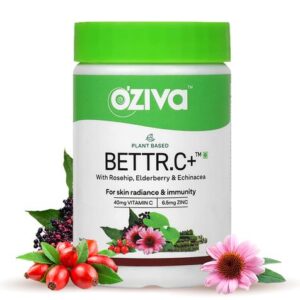
A nutrient that has taken over the food and health market is Omega-3! From supplements to even vegetable oils, everyone wants to add a bit of Omega-3 to their diet. But what is this nutrient and why is everyone talking about it? Let’s discuss more about Omega-3 and its benefits.
What is Omega-3?
Omega-3s are polyunsaturated fatty acids. In simple terms, they are the kind of fats that your body cannot make. Wait, did you just read fat? Isn’t fat bad? No. In fact, some fats are good and essential for your body. Fats like Omega-3 are considered essential as our bodies cannot produce them on their own. You must incorporate them into your diet through foods that are abundant in Omega- 3.
Benefits of Omega- 3
How are Omega-3 fatty acids beneficial for the body? Let’s find out their role.
Omega-3 for better eye health
One of the different types of Omega-3 fatty acids is DHA, which is an important structural component of the retina.1 Consumption of Omega-3 has proven to reduce the risk of macular degeneration, which is the major cause of blindness.2
Omega-3 for better heart health
Omega-3 also helps in the management of hypertension.3 It raises good cholesterol (HDL) levels, prevents the formation of arterial plaque and harmful blood clots. Thus it overall plays a major role in reducing the risk of heart disease.
Omega-3 for better mental health
EPA, one of the Omega-3 fatty acids, also helps to improve the mental health of patients suffering from depression. It is also clinically proven that these fatty acids also help children who are struggling with ADHD.4
Thus, incorporating omega- 3 or omega- 3 supplements into your regular diet can help you keep your body and mind healthy.
Sources of Omega-3
Since Omega-3 is so essential and beneficial for our bodies and must be consumed via food, it’s important to discuss its dietary sources.
Flaxseed
Flaxseed is one of the superfoods that are rich in a variety of nutrients. Flaxseed can be mixed with smoothies or taken directly. A spoonful of flaxseed helps you fulfil your daily requirement of omega- 3.
Chia Seed
Packed with Omega- 3, chia seeds are good for desserts and smoothies and help you get the daily intake.
Walnuts
One of the foods that improve memory, walnuts are a great source of vegetarian Omega- 3.
OZiva Omega Multi
While plant-based dietary sources of Omega-3 are great, they are an indirect source i.e these foods are high in ALA which is then converted by the body to EPA and DHA. OZiva Omega Multi contains Omega-3 fatty acids derived from marine algae that provide you with all the 3 essential fatty acids directly.
Takeaway
Thus, now that you are aware of the beauty of Omega-3 and how to incorporate it into your daily diet, it’s important to put this knowledge into action. Consume seeds or plant-based supplements like OZiva Omega Multi and make it a part of your and your family’s daily diet. If you liked this article, do share it with your loved ones.
Sources:
1. https://pubmed.ncbi.nlm.nih.gov/2136947/
2. https://pubmed.ncbi.nlm.nih.gov/22559899/
3. https://pubmed.ncbi.nlm.nih.gov/16879829/
4. https://pubmed.ncbi.nlm.nih.gov/21961774/
Last modified: October 20, 2023




